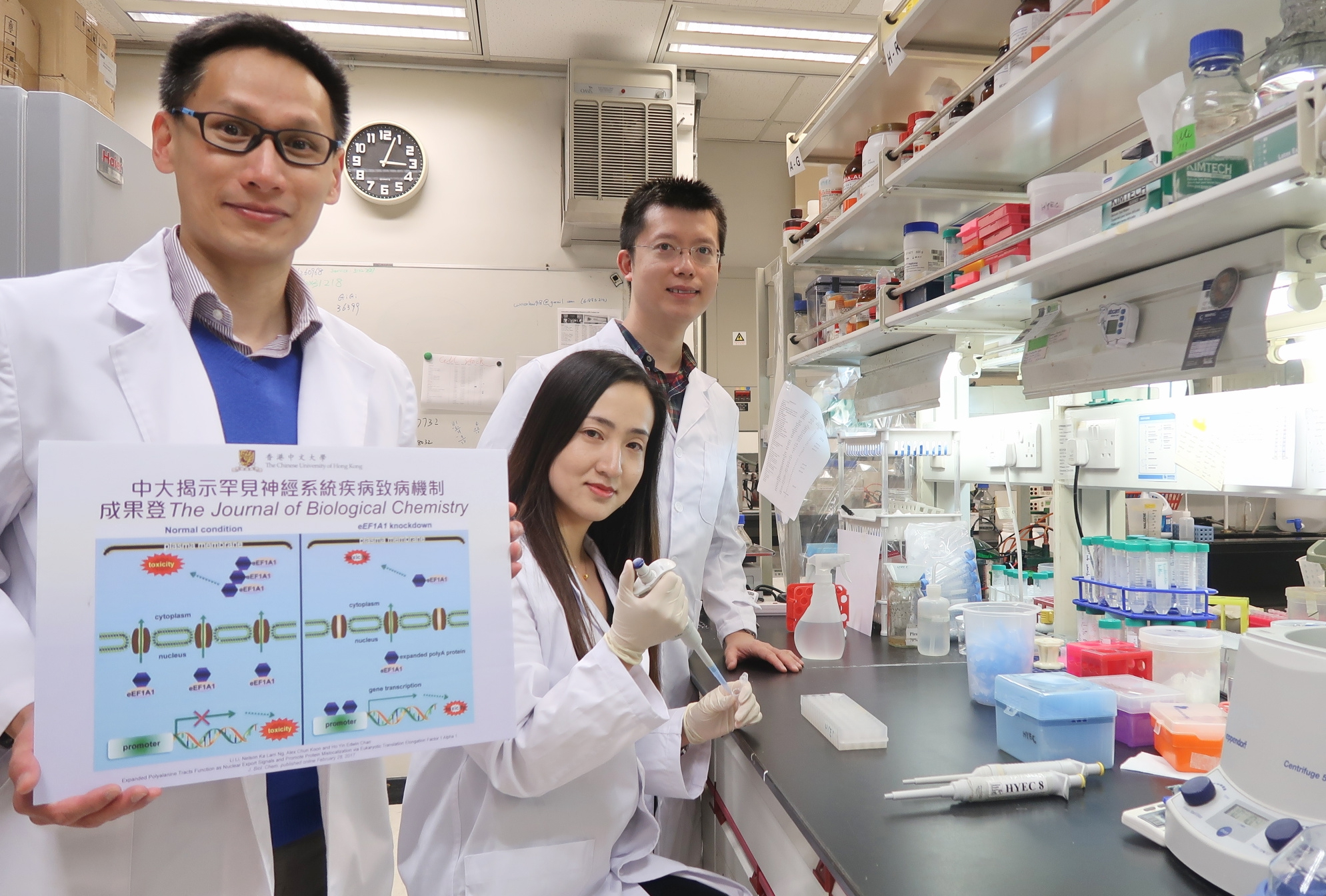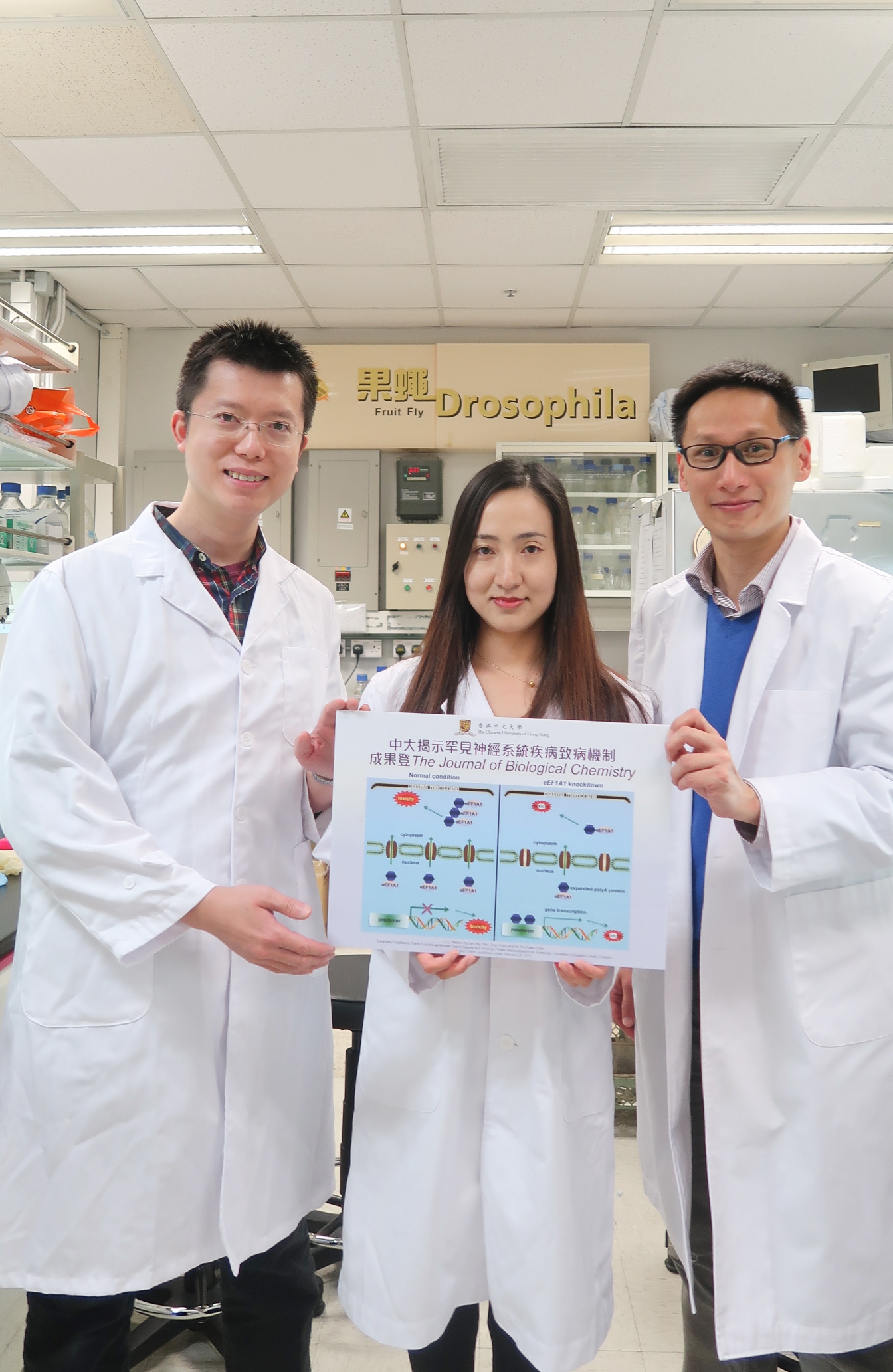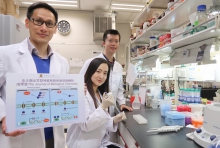CUHK
News Centre
CUHK Unveils Pathogenic Mechanism for a Group of Rare Diseases
Prof. H.Y. Edwin Chan from the School of Life Sciences of The Chinese University of Hong Kong (CUHK) and his research team have recently elucidated a novel pathogenic mechanism for a group of rare neuronal disorders, referred to as polyalanine (polyA) diseases. This work has been published recently in the prestigious scientific journal, The Journal of Biological Chemistry.
PolyA diseases represent a group of genetic neurological disorders which includes oculopharyneal muscular dystrophy (OPMD) and congenital central hypoventilation syndrome (CCHS). OPMD causes late onset muscular dystrophy with progressive eyelid drooping, swallowing difficulties and proximal limb weakness, while patients with CCHS lose their ability to control breathing. Both OPMD and CCHS cases have been reported in Hong Kong, and to date, polyA diseases remain incurable.
PolyA diseases are caused by a polyA expansion in proteins that normally reside within the cell nucleus. After the nuclear proteins acquire a polyA expansion mutation, their localization changes from the cell nucleus to the cell cytoplasm. This mislocalization abolishes the proteins’ normal function of transcribing DNA to RNA in the cell nucleus, and thus impairing the normal production of other proteins. However, the cause of such protein mislocalization lacked explanations.
In their study, Professor Chan and his team showed that the expanded polyA tract possesses nuclear export activity. Further, they found that the disruption of the eukaryotic translation elongation factor 1 alpha 1 (eEF1A1) protein perturbed the nuclear export of expanded polyA protein, and restored the transcriptional function of expanded polyA proteins. This is the first report to demonstrate nuclear export activity in expanded polyA tracts, and the manipulation of eEF1A1, which restores the normal transcriptional function of polyA proteins, may provide novel insights into new therapeutic approaches to combat polyA diseases. This work was supported by the General Research Fund of the Research Grants Council and the CUHK Gerald Choa Neuroscience Centre.
Professor Chan said, ‘This novel finding will help us develop medication that can suppress the export activity of expanded polyA proteins, thereby slowing down disease progression. We hope our continuous effort can make further contributions to the development of biomedical sciences.’
Since 1998, Prof. H.Y. Edwin Chan has been investigating rare neurological and neuromuscular disorders. In 2014, he received a Churchill College Visiting By-Fellowship at The University of Cambridge, UK. Professor Chan established an intercontinental research collaboration network on rare neuronal diseases, including polyA diseases, Huntington’s disease, myotonic dystrophy and spinocerebellar ataxias, and co-manages multi-disciplinary research programmes with his collaborators residing in Denmark, France, Italy, UK and US.
Brief biography of Professor H.Y. Edwin Chan
Prof. H.Y. Edwin Chan is Professor and Director of the Master of Science Degree Programme in Biochemical and Biomedical Sciences in the School of Life Sciences. He received undergraduate training in biochemistry from CUHK, doctoral training at The University of Cambridge (UK), and postdoctoral training at The University of Pennsylvania (US). Since 1999, Prof. Chan has been investigating the pathogenic pathways of rare neuronal diseases. His contribution to this field has been recognized by academia through the various research prizes he has received, including the 2010 CUHK Young Researcher Award, and the 2011 Genetics Society of China 13th Ju-Chi Li Animal Genetics Prize.
Professor Chan currently holds several U.S. patents based on technologies he developed for rare neuronal disease treatments. He participates in peer-review activities for academic journals and international funding agencies. He also takes part in editorial activities for several academic journals.
A research team led by Prof. Edwin Chan of School of Life Sciences unveils pathogenic mechanistic details of polyalanine diseases, a group of rare disorders. From Left: Prof. Edwin CHAN, Dr. Li LI, Prof. Alex KOON.





